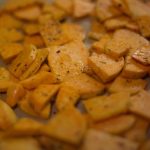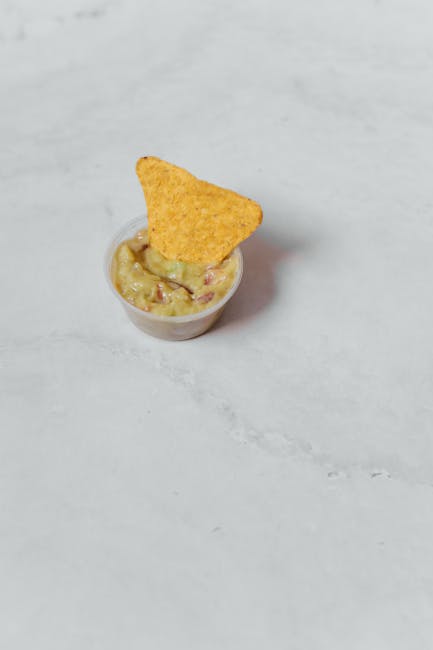Scones, those delightful handheld pastries, boast a history as rich and layered as their crumbly texture. While their precise origins are debated, the most widely accepted theory points to Scotland in the 16th century. Early versions likely lacked the sweetness we associate with modern scones, instead focusing on savory ingredients like oatmeal and cheese. The evolution of the scone is a fascinating journey reflecting changing culinary trends and the increasing availability of ingredients. The transition to sweeter scones, often incorporating fruit, occurred gradually, with the addition of sugar and fruits like currants and raisins becoming more commonplace during the 18th and 19th centuries. The rise of baking powder in the late 19th century further transformed the scone, allowing for a lighter, airier texture that we recognize today.
The cultural significance of scones is undeniable, particularly within British culture. They are a staple at afternoon tea, a tradition that has spread globally, becoming a symbol of refined elegance and social gatherings. The simple pleasure of enjoying a warm scone with clotted cream and jam is a deeply ingrained cultural experience, representing a moment of respite and indulgence. This tradition, however, is only one facet of the scone’s story. Across various cultures, similar baked goods exist, showcasing the universal appeal of a quick bread that can be easily adapted to local tastes and ingredients. The vegan adaptation of this classic, as seen in our Vegan Blueberry Scones, highlights the ongoing evolution of culinary traditions.
Our Vegan Blueberry Scones represent a modern twist on a classic. The increasing popularity of veganism, with a global market projected to reach over $74 billion by 2027, has spurred innovation within the baking world. This recipe demonstrates that deliciousness and ethical considerations can coexist seamlessly. By replacing traditional dairy and eggs with plant-based alternatives, we retain the delightful crumbly texture and subtle sweetness of a traditional scone while catering to a growing segment of consumers who prioritize plant-based diets. The vibrant pop of blueberries adds a refreshing twist, offering a juicy burst of flavor that complements the slightly sweet and buttery scone base perfectly. These scones are not just a delicious treat; they represent a conscious choice, a commitment to both culinary excellence and ethical consumption.
Interestingly, the inclusion of blueberries in scones, while now commonplace, reflects a more recent development. Blueberries, originally native to North America, gained popularity worldwide only in the 20th century, their distinctive flavor and vibrant color making them a desirable addition to many baked goods. Their incorporation into vegan scones underscores the ongoing fusion of culinary traditions and the exciting possibilities that arise from combining classic recipes with contemporary ingredients and dietary preferences. These scones, therefore, are a testament to culinary evolution, combining historical traditions with modern sensibilities and a commitment to ethical and delicious food.
Ingredients and Measurements
This recipe yields approximately 8-10 generously sized vegan blueberry scones. Accurate measurements are crucial for achieving the perfect texture and flavour. Using a kitchen scale is highly recommended for the dry ingredients, as it ensures consistency from batch to batch. For liquid ingredients, a liquid measuring cup is preferred.
Dry Ingredients:
250g (2 cups) All-Purpose Flour: Using a good quality all-purpose flour is vital. Avoid using self-raising flour unless specifically instructed, as this recipe includes its own raising agent. If you prefer a slightly lighter scone, you can substitute up to 50g (1/4 cup) of the all-purpose flour with cake flour. Sifting the flour before measuring is highly recommended to ensure a light and airy texture, removing any lumps and incorporating air.
50g (1/4 cup + 2 tbsp) Granulated Sugar: This amount provides a pleasant sweetness without being overpowering. Feel free to adjust this to your preference, but remember that too much sugar can result in overly sweet and potentially dense scones.
10g (2 tsp) Baking Powder: Ensure your baking powder is fresh. Old baking powder loses its leavening power, resulting in flat scones. Check the expiration date before using.
5g (1 tsp) Baking Soda: Baking soda, in combination with baking powder, provides a double-acting leavening system, resulting in beautifully light and fluffy scones.
5g (1 tsp) Salt: Salt enhances the flavour of the scones and balances the sweetness. Don’t skip this ingredient!
Wet Ingredients:
120ml (1/2 cup) Plant-Based Milk: Any plant-based milk will work, such as almond, soy, oat, or cashew milk. Use a milk that you enjoy the taste of, as it will subtly impact the flavour of the scones. Ensure the milk is at room temperature for optimal mixing and even baking.
60ml (1/4 cup) Melted Vegan Butter (or Oil): Vegan butter adds richness and flavour. If you prefer a slightly less rich scone, you can substitute with a neutral-tasting oil like canola or vegetable oil. Make sure the butter is completely melted and cooled slightly before adding it to the dry ingredients. Avoid using hot melted butter as it might cook the baking powder prematurely.
1 tsp Vanilla Extract: A touch of vanilla extract enhances the overall flavour profile of the scones, adding warmth and depth.
Other Ingredients:
150g (1 1/2 cups) Fresh or Frozen Blueberries: If using frozen blueberries, do not thaw them beforehand. The cold berries help prevent the scones from becoming overly moist and ensure they bake evenly. Toss the blueberries with a tablespoon of flour before adding them to the dough to prevent them from sinking to the bottom.
Optional: Coarse Sugar for Topping: Sprinkling coarse sugar over the top of the scones before baking adds a delightful crunch and visual appeal.
Note: All measurements are approximate. Feel free to adjust the sweetness and blueberry quantity based on your preference. Always weigh your ingredients for the most accurate and consistent results.
Equipment List
Baking delicious vegan blueberry scones requires the right tools to ensure a smooth and successful process. This equipment list details everything you’ll need, from measuring tools to baking pans, along with recommendations for optimal results. Having the correct equipment will not only make the baking process easier but will also contribute to achieving the perfect texture and rise in your scones.
Measuring Cups and Spoons: Accurate measurements are crucial in baking. Invest in a set of both dry and liquid measuring cups and spoons. Avoid using casual kitchen utensils for measuring ingredients as inconsistent measurements can significantly impact the final product. For this recipe, you’ll need at least one 2-cup dry measuring cup, one 1-cup dry measuring cup, and a set of measuring spoons (1 tbsp, 1 tsp, 1/2 tsp, 1/4 tsp). Using a kitchen scale for weighing ingredients, especially flour, is highly recommended for even more precise measurements. A digital kitchen scale will provide the most accurate results.
Mixing Bowls: You’ll need at least two mixing bowls. One large bowl (approximately 4-quart capacity) will be used for combining the dry ingredients, and a medium-sized bowl (approximately 2-quart capacity) will be used for mixing the wet ingredients. Choose bowls that are sturdy and non-reactive, such as stainless steel or glass. Avoid using plastic bowls as they can sometimes retain odors and may not be suitable for all ingredients.
Baking Sheet: A standard baking sheet (approximately 12×18 inches) is necessary for baking the scones. Ensure your baking sheet is un-rimmed and made of a material that distributes heat evenly, such as aluminum or heavy-duty non-stick. Avoid using dark-colored baking sheets as they can lead to uneven browning.
Pastry Blender or Fork: This is used to cut the vegan butter into the flour mixture. A pastry blender is ideal, but a fork can work effectively as well. The goal is to create a crumbly texture. If using a fork, ensure you work quickly and efficiently to avoid over-mixing the dough.
Rubber Spatula or Scraper: A rubber spatula or scraper is essential for scraping down the sides of the bowl and ensuring all ingredients are properly incorporated. Choose a sturdy spatula with a flexible blade for efficient mixing and scraping.
Parchment Paper: Lining your baking sheet with parchment paper will prevent your scones from sticking and make cleanup incredibly easy. Use a sheet of parchment paper large enough to fully cover your baking sheet.
Wire Rack: Once the scones are baked, transfer them to a wire rack to cool completely. This allows for proper air circulation and prevents sogginess. A cooling rack will also assist in achieving a crisp exterior.
Optional Equipment: While not strictly necessary, a sifter can be used to aerate the flour and other dry ingredients, resulting in lighter scones. A biscuit cutter or a sharp knife can be used to cut the scones into even shapes.
Instructions: Mixing the Wet Ingredients
This section details the crucial step of combining the wet ingredients for your vegan blueberry scones. Precise measurements and careful technique are key to achieving a light and fluffy texture. We’ll be using plant-based milk, oil, and a touch of apple cider vinegar to create the perfect moist base for your scones.
Begin by measuring out 1 cup (240ml) of unsweetened plant-based milk. Any variety will work, such as almond milk, soy milk, or oat milk. Avoid using milk that’s already sweetened, as this can affect the overall sweetness and balance of the scones. Pour the milk into a medium-sized bowl. Make sure your measuring cup is level; using too much liquid can result in dense scones.
Next, add 1/4 cup (60ml) of neutral-flavored oil to the bowl with the plant-based milk. Vegetable oil, canola oil, or even melted coconut oil (ensure it’s completely melted and cooled slightly to avoid cooking the milk) are excellent choices. The oil adds richness and tenderness to the scones. Avoid using strongly flavored oils like olive oil, as they can overpower the delicate blueberry flavor.
Now, incorporate 1 tablespoon of apple cider vinegar into the wet ingredients. This simple addition acts as a vegan buttermilk substitute, reacting with the baking soda later in the recipe to create a light and airy crumb. Don’t skip this step! The vinegar is crucial for the leavening process and contributes significantly to the final texture. Gently whisk the milk, oil, and vinegar together until they are thoroughly combined.
At this stage, you might notice some slight curdling of the milk due to the addition of the vinegar. This is perfectly normal and expected. Don’t worry if you see small clumps forming; they will be seamlessly incorporated into the dough during the next mixing stage. The curdling actually contributes to the tender crumb of the scones.
Finally, add 1 teaspoon of vanilla extract to the wet ingredients. This will enhance the overall flavor of the scones, complementing the sweetness of the blueberries. Use a high-quality vanilla extract for the best results. Give everything one last gentle whisk to ensure all the ingredients are evenly distributed. Your wet ingredients are now ready to be combined with the dry ingredients in the next step of the recipe.
Important Note: Before proceeding to the next step, ensure all your wet ingredients are at room temperature. This will help them blend smoothly with the dry ingredients and prevent lumps from forming in the dough. Cold ingredients can lead to uneven baking and a denser final product.
Instructions (Mixing Dry Ingredients)
This section details the crucial step of combining the dry ingredients for your vegan blueberry scones. Precise measurement and thorough mixing are key to achieving a light and fluffy texture. We’ll be working with 2 ½ cups (300g) of all-purpose flour, ¼ cup (50g) of granulated sugar, 4 teaspoons (20g) of baking powder, ½ teaspoon (3g) of baking soda, and ½ teaspoon (3g) of salt. These quantities are carefully calibrated to ensure the perfect rise and flavor balance in your scones.
Begin by measuring your flour accurately. Use a kitchen scale for the most precise results, as scooping flour directly from the bag can lead to significant variations in volume. If you’re using measuring cups, gently spoon the flour into the cup, avoiding packing it down. Over-packing the flour will result in denser scones.
Next, measure out the granulated sugar. Again, a scale is preferred, but if using a measuring cup, level it off using a straight edge. Avoid compacting the sugar, ensuring a consistent volume for even sweetness throughout the scones.
Now, for the leavening agents: baking powder and baking soda. These are crucial for achieving a tender crumb and a good rise. Use a level teaspoon for precise measurements. If your baking powder is old, it might not provide the necessary lift, so check its expiration date before using it. If you suspect it’s old, it’s best to replace it with a fresh batch.
Finally, add the salt. Salt not only enhances the flavor but also helps to balance the sweetness. A half teaspoon of fine salt is sufficient. Avoid using coarse salt, as it might create an uneven distribution of saltiness in the scones.
Once all your dry ingredients are measured, transfer them to a large bowl. Using a large bowl allows for easier mixing and prevents ingredients from spilling over the sides. Whisk the dry ingredients together vigorously for at least 30 seconds. This ensures that the baking powder and baking soda are evenly distributed throughout the flour mixture, preventing pockets of uneven leavening. A well-combined dry mixture is the foundation for perfectly textured scones.
Avoid over-mixing the dry ingredients. While thorough mixing is essential, excessive mixing can lead to the development of gluten, resulting in tough scones. A gentle yet thorough whisk is all that’s needed to achieve a uniform consistency. Once the dry ingredients are well combined, you’re ready to proceed with the next steps of the recipe, incorporating the wet ingredients.
Pro Tip: Sift the flour if you prefer an exceptionally light and airy scone. Sifting removes any lumps and aerates the flour, resulting in a slightly lighter texture. However, this step isn’t strictly necessary for delicious scones.
Instructions (Combining Wet and Dry Ingredients)
This section details the crucial step of combining the wet and dry ingredients for your delicious vegan blueberry scones. Proper technique ensures a light and fluffy texture, avoiding a dense or gummy result. We’ll be working with two distinct bowls: one for the wet ingredients and another for the dry.
Preparing the Wet Ingredients: In a medium-sized bowl, combine 1/2 cup (113g) unsweetened applesauce, 1/4 cup (60ml) unsweetened almond milk (or other plant-based milk), 2 tablespoons (28g) melted vegan butter (or coconut oil), and 1 teaspoon pure vanilla extract. Ensure the vegan butter is completely melted but not hot; lukewarm is ideal to prevent the milk from curdling. Whisk these ingredients together gently until thoroughly combined and smooth. Don’t over-whisk; a few gentle strokes are sufficient. The mixture should be relatively uniform in consistency.
Preparing the Dry Ingredients: In a separate large bowl, whisk together 2 cups (250g) all-purpose flour, 1/4 cup (50g) granulated sugar, 1 tablespoon baking powder, 1/2 teaspoon baking soda, and 1/4 teaspoon salt. Sift the dry ingredients for best results. Sifting aerates the flour, preventing dense scones. If you don’t have a sifter, vigorously whisk the dry ingredients together for a couple of minutes to achieve a similar effect. This ensures even distribution of the leavening agents.
Combining Wet and Dry Ingredients: This step requires a light touch to prevent over-mixing. Gradually add the wet ingredients to the dry ingredients, mixing gently with a fork or a rubber spatula. Avoid using a mixer; the dough should not be over-worked. Fold the wet ingredients into the dry ingredients in a circular motion, using a cutting motion to incorporate the wet ingredients completely. Continue mixing until just combined; a few small lumps are acceptable. Over-mixing will develop the gluten in the flour, resulting in tough scones.
Incorporating the Blueberries: Gently fold in 1 cup (150g) fresh or frozen blueberries. If using frozen blueberries, ensure they are not completely thawed; slightly frozen blueberries will prevent them from sinking to the bottom of the scones. Use a light hand to prevent crushing the blueberries. The dough should be slightly sticky but manageable. Avoid over-mixing at this stage to maintain the airiness of the scones.
Important Note: The dough should be slightly sticky, but not overly wet. If it seems too dry, add a tablespoon of almond milk at a time until the desired consistency is reached. Conversely, if it’s too wet, add a tablespoon of flour at a time until it comes together. The goal is a soft, slightly sticky dough that holds its shape when gently pressed.
Once the wet and dry ingredients are thoroughly (but gently) combined and the blueberries are incorporated, you’re ready to proceed to shaping and baking your delicious vegan blueberry scones!
Baking Instructions
Preheat your oven to 400°F (200°C). Line a baking sheet with parchment paper. This prevents sticking and makes cleanup a breeze. Don’t skip this step!
In a large bowl, whisk together 2 cups of all-purpose flour, ½ cup granulated sugar, 2 teaspoons baking powder, ½ teaspoon baking soda, and ½ teaspoon salt. Ensure all dry ingredients are thoroughly combined to guarantee even leavening throughout the scones.
In a separate bowl, whisk together ½ cup unsweetened plant-based milk (almond, soy, or oat milk work well), ¼ cup melted vegan butter (or coconut oil), and 1 teaspoon vanilla extract. The vegan butter should be melted but not hot; slightly warm is ideal. Overly hot butter can cook the eggs (if using any in your recipe variant) and impact the texture of the scones.
Gently pour the wet ingredients into the dry ingredients. Using a fork, stir until just combined. Do not overmix. Overmixing develops the gluten in the flour, resulting in tough scones. A few lumps are perfectly acceptable and contribute to a tender crumb.
Fold in 1 ½ cups of fresh or frozen blueberries. If using frozen blueberries, ensure they are not dripping wet; lightly pat them dry with a paper towel to prevent a gummy texture. Gently fold the blueberries into the batter; you want to distribute them evenly without smashing them.
Turn the dough out onto a lightly floured surface. Pat the dough into a 1-inch thick circle. Using a sharp knife or a biscuit cutter, cut the circle into 8 equal wedges. Use a sharp knife and cut cleanly; a dull knife will smush the dough, affecting the shape and rise of your scones.
Place the scones onto the prepared baking sheet, leaving about 1 inch between each scone. Allowing space between scones is crucial for proper baking and even browning.
Bake for 12-15 minutes, or until the scones are golden brown on top and a toothpick inserted into the center comes out clean. Baking time may vary depending on your oven, so keep a close eye on them during the last few minutes. If they start to brown too quickly, reduce the oven temperature slightly.
Remove the scones from the oven and let them cool on the baking sheet for a few minutes before transferring them to a wire rack to cool completely. Cooling on a wire rack prevents sogginess and allows for even cooling throughout the scone. Enjoy your delicious vegan blueberry scones!
Optional: For extra flavour, brush the tops of the scones with a little plant-based milk before baking for a beautiful golden-brown finish.
Vegan Blueberry Scone Recommendations
These delectable vegan blueberry scones are best enjoyed fresh from the oven, still warm and slightly crumbly. For optimal flavor and texture, we recommend consuming them within 24 hours of baking. Their delightful sweetness and subtle tang make them a perfect treat for any time of day, from a satisfying breakfast alongside a warm beverage to a delightful afternoon snack.
Serving Suggestions: These scones are incredibly versatile. Enjoy them simply on their own, perhaps with a pat of vegan butter or a dollop of vegan cream cheese for added richness. They pair beautifully with a steaming cup of coffee, tea, or even a glass of chilled almond milk. For a more decadent experience, serve them with a side of fresh berries and a drizzle of maple syrup. A dollop of vegan whipped cream adds a luxurious touch. Consider warming them gently in the oven or toaster oven for a few minutes before serving to enhance their texture and aroma.
Storage: To maintain freshness, store leftover scones in an airtight container at room temperature for up to two days. For longer storage (up to a week), wrap them tightly in plastic wrap or place them in a freezer-safe bag and freeze. To reheat frozen scones, simply thaw them overnight in the refrigerator and then reheat in a toaster oven or conventional oven until warmed through. Avoid microwaving, as this can result in a soggy texture.
Complementary Dishes: These vegan blueberry scones are a wonderful addition to a variety of meals and occasions. They complement brunch spreads perfectly, pairing well with savory dishes like tofu scramble or vegan sausage patties. They can also be a delightful accompaniment to a light lunch, served alongside a simple salad or soup. For a truly special treat, serve them with a scoop of vegan vanilla ice cream for a warm-and-cold dessert combination. The scones also make a fantastic addition to a picnic basket.
Nutritional Information (per scone, approximate): Calories: 250-300, Fat: 10-12g, Saturated Fat: 2-3g, Cholesterol: 0mg, Sodium: 150-200mg, Carbohydrates: 35-40g, Fiber: 2-3g, Sugars: 15-20g, Protein: 4-5g. Please note that these values are estimates and may vary depending on specific ingredients and portion sizes.
Important Note: While we strive for accuracy in our nutritional information, it’s always best to check the nutritional labels of your specific ingredients to calculate the most precise values for your baked goods. Enjoy responsibly!





